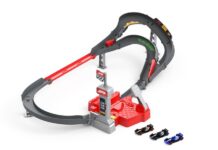Pravin Gordhan has kept a VAT hike at bay for now, but the purse strings are still pulling tighter than ever. We’re all looking at ways to stretch the budget. Is your vehicle’s maintenance a good place to start? The experts are shaking their heads.
PORT ELIZABETH – Next to your home, your car is probably your biggest asset and an important part of the family. Yet, when finances are tight, it’s often this baby that gets short changed, with knock-off replacement parts and a cheap ‘n cheerful service.
While it may be tempting to skimp on these expenses, automotive specialists insist that such budgeting is ‘penny wise but pound foolish’ and could cost you heavily in the long run. Here’s why:
ENGINEERING AND TESTING
When counted down to the last screw, your car is made up of approximately 30 000 individual pieces. Intensive research, engineering development and rigorous testing has gone into each part – and it is only through integration and validation testing that the bits finally come together to create a robust vehicle.
“Stick in an ‘outsider’ part, and you jeopardize the integration and functionality of the whole vehicle,” explains Llewellyn van Antwerpen, GMSA Senior Manager, Aftersales.
“Non-OEM (original equipment manufacturer) parts might look the same as the original, but they are not created equal. There is no way of knowing how they will perform. That’s a risk that could affect the safety of the vehicle and its occupants, jeopardize the validity of your warranty, as well as the performance and life-span of the vehicle – not to mention the expensive consequences should major components fail.”
COUNTING THE COST
Why, though, are the knock-offs frequently cheaper than the genuine/OEM parts? Van Antwerpen says they most certainly wouldn’t be if they were engineered, tested and certified to OEM specifications.
“There is, of course, a cost to the engineering and stringent testing that ensures that each part operates optimally and is perfectly integrated with other OEM parts. The knock-offs are usually simple copies, often of low-grade materials, with no quality testing to ensure performance,” he says. Kind of like those ‘robot Ray-Bans’ that street vendors wave in our faces, right?
TRAINED, APPROVED SERVICE YOU CAN TRUST
How do I know whether my service centre (or panel beater if the car’s had an accident) is using acceptable replacement parts? And isn’t it okay to send my vehicle to the mechanic around the corner for its service?
Interestingly, Van Antwerpen says that while some motorists may shun their cars’ dealer or approved centres because they assume an independent garage will be cheaper, a little homework would probably prove them wrong.
Routine servicing at your dealership is often just as competitive, and it’s important to check whether the independent’s use of non-OEM parts isn’t partly responsible for price disparities.
“Customers can only be assured of having genuine parts fitted by servicing and repairing their vehicle at a manufacturer-approved dealership or body repairer, such as those in the countrywide Chevrolet, Opel or Isuzu network.
“Additionally, all approved service and repair work is carried out by trained technicians, using specialist diagnostic equipment and tools. With increasingly advanced levels of technology in today’s vehicles, the special tools and access to technical information and training require a substantial investment – and one that only a manufacturer-approved service provider is willing to make regularly. Nobody knows your vehicle better than these trained professionals,” he points out.
“The corner dent guy offers no guarantees that repairs are to manufacturer standards. In support of our customers, GMSA has a network of close to 400 GM-approved body repairers, who have met our stringent requirements with regards to equipment, qualifications, and customer service and satisfaction. We monitor their performance to ensure that only the best quality of repair is delivered to our mutual customers, and would support any customers if there are any issues with repairs.”
Franchised dealers are also able to conduct investigative vehicle health checks, which highlight any recall campaigns that need to be performed on the vehicle.
“You get what you pay for,” he stresses. “Personally, I can’t understand why anyone would put the safety of their family and the value of their expensive asset at risk by not servicing and repairing with providers approved by the manufacturer.”




























